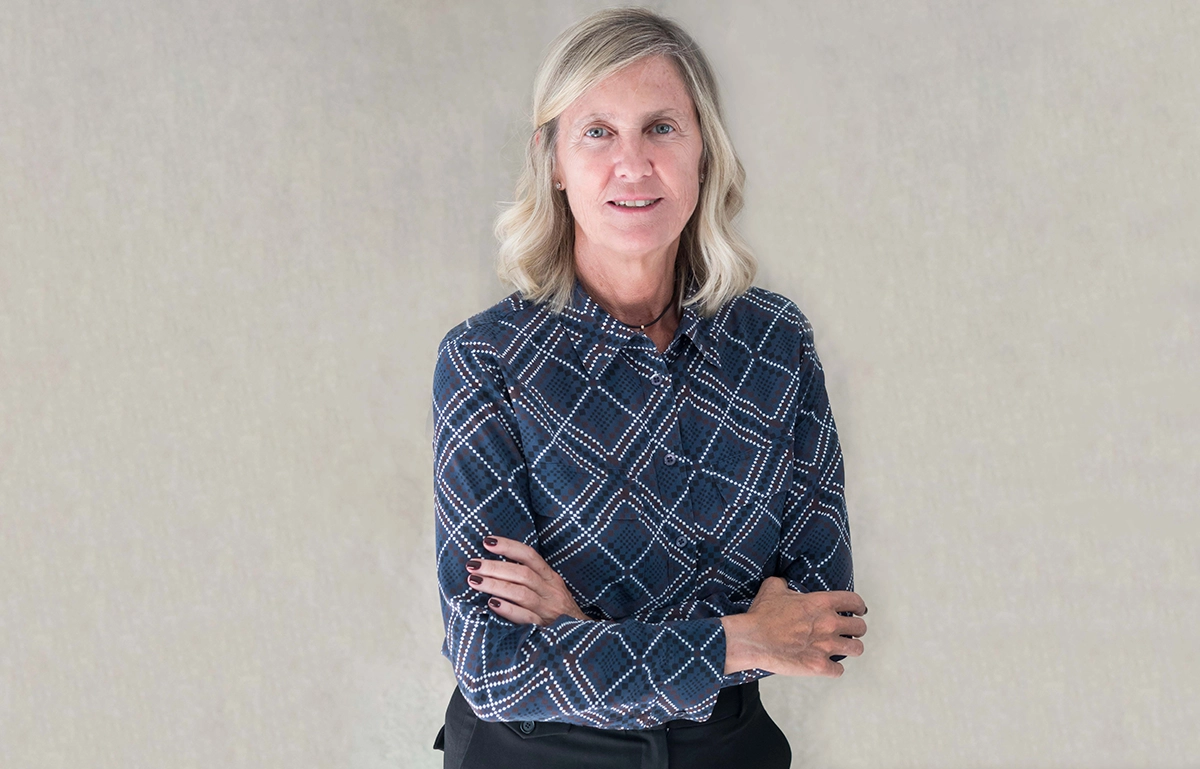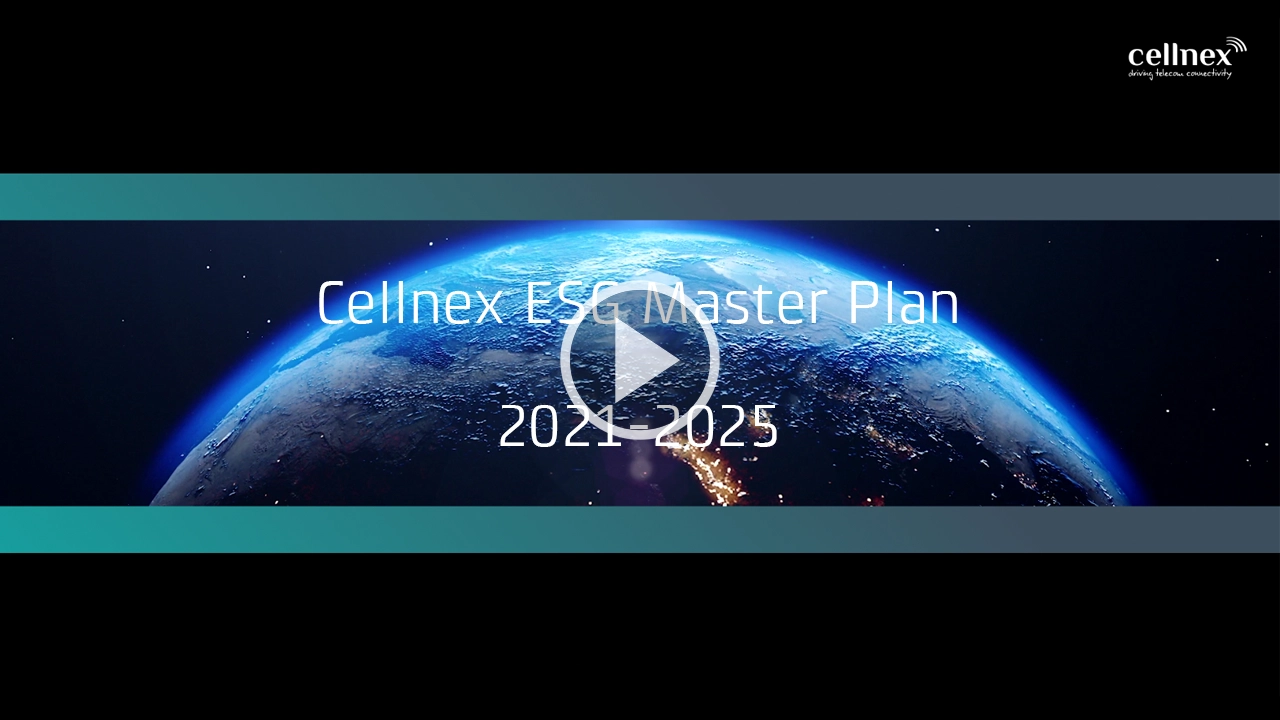Trends
Trends
SEP
23
2021
Social
Sustainability is not a fad, it’s a conviction
Marieta del Rivero is an independent director of Cellnex Telecom and chair of its Nominations, Remunerations and Sustainability Committee. She is also an independent director and member of the Sustainability Committee of Gestamp Automotive, chair of Onivia and a member of the board of the Women’s Forum, among other positions. Associated for much of her career with the world of telecommunications and technology corporations and an expert in Smart Cities, she is a corporate governance enthusiast and has been recognised as one of the 500 most influential women in Spain.
On the occasion of the presentation of the first Environment and Climate Change report at Cellnex, we chatted with her about one of the most searched-for acronyms on the internet: ESG (Environment, Social and Governance).
In the midst of the explosion of ESG and while authorities and regulators are trying to standardise reporting methods, what do you think are the main challenges for companies when it comes to implementing credible policies in this area?
For me there are basically three challenges, two strategic and a third more technical and temporary. The first is governance. The crises that we have seen in recent years in some large corporations have reaffirmed the importance of good corporate governance and a board of directors capable of helping to take the right decisions. The references to the company promoted by Paul Polman or Larry Fink on the direction that companies must define in the long term as a sustainable culture, are today a pillar in any business with vision. As Polman says, the moral obligation to be sustainable is a business opportunity, and corporate governance is the umbrella of that strategy.
The second challenge has to do with internalisation. The ESG strategy cannot be a simple box-checking exercise or going through the motions of the compliance policy; it must be embedded in companies’ DNA and extend their life cycle.
The third is linked to the standardisation of measurement, supervision and reporting models. Non-financial information still lacks a common language to communicate with stakeholders, measure strategies and lend credibility and reality to these policies.
And how does Cellnex face those challenges?
Although it is still a very young company, Cellnex has built very solid pillars of an ESG culture in the Board, that are measurable and based on a meritocracy, inclusion and equity, without changing the principle of profitability and its vocation to survive. At Cellnex we have advanced and innovated much more than our competitors and other listed companies, with activity reports in various standards and defined strategies. In the second ESG Master Plan 2021-2025 the challenge is to build this culture so that it permeates all levels of the organisation.
The universal fragility revealed by the pandemic has emphasised the importance of identifying and managing risk. To what extent do you think that COVID has shaken awareness or promoted different policies?
Apart from the disruption and the many personal tragedies that the pandemic has brought with it, we have learned a lot. Today individuals and companies are in a better place, because this crisis has put us in unexpected situations that have brought out the best in us.
We have learned to stop. We come from a culture that regards stopping as lazy, and we have realised that when the world has stopped and we have spent time thinking we have done some very important things.
The COVID crisis has been the best chief digital officer in history. After spending many years trying to champion the benefits of technology, I have come across corporate cultures in which telecommuting or working to targets was not possible. In February 2020, in one of the companies I work for, I tried to conduct a board meeting by video and it didn’t work. Less than a month later, we were all on Zoom.
And overnight, companies, as well as individuals, were forced to change their habits and ways of understanding and facing the future. Don’t you think?
The pandemic has been a tremendous enabler of change in all types of companies and institutions, with a positive impact in terms of conciliation or working much more towards targets compared with that antiquated face-to-face culture.
It has also made us realise that we all depend on everyone else… Team culture has been reinforced. Individualism is dead; we have discovered new ways of working and collaborating. At the same time, it has valued diversity in the broadest sense. Differences in gender, thinking, age, etc. have been very valuable for reinventing businesses.
It has also brought about a paradigm shift in risk management and analysis. The internal auditor, for example, plays a determining role when companies have to analyse whether a business closes, when it reopens or the shape of contingency plans… Lateral thinking brings objectivity, and for me it has been a great lesson.
Do you think that boards of directors have ESG strategies in their sights? How should they prepare to face and monitor them?
This is not a fad; it is a profound change, a catalyst for a new way of understanding business with a long-term sustainable vision and seeking a balance between social, economic and environmental aspects.
In the corporate world, there is still some way to go; the balance sheet and the income statement are still receiving more attention than the energy transition plan (…) it’s only a matter of time before boards start creating this culture.
This is not the case at Cellnex, where taking responsibility in the Board has been an example for many other companies on how to accelerate this implementation by taking very important decisions. The first is that commitment to ESG is a priority for the Board. The core is a specific committee in which the main areas of the company are represented and that devises and implements measurable high-impact actions that are aligned with the group’s strategy.
We have frequent updates, we have metrics and KPIs (key performance indicators) to monitor the achievement of the targets. In the first master plan we achieved 90% of the targets and in this one we will achieve 100%.
What would you say to those who argue that there is a certain “bubble” of sustainability, business posturing, greenwashing or simply think that ESG strategies are standing in the way of profitability?
There is a lot of conviction, and regulation, as I said before, will help to improve credibility. There are boards and companies that still see it as a compliance issue and others that firmly believe in it. What makes the difference is when resources are committed and there is a plan to achieve the targets. The short-term transition cost may be higher, but another 90 days will hardly matter. There are a number of studies that demonstrate the financial profitability of these policies, not to mention companies’ longevity.
Knowledge is also very important in order to become aware and change the culture, and training is another relevant topic in that connection. ESG is all-embracing; it covers so many topics that it’s not yet easy to find professionals who know the acronym. We at Cellnex, at Board and management team level, are now beginning an ESG education and training programme with IESE.
Sustainability is a cross-cutting concept in which it is vital for all levels of companies to share vision and purpose. What do you think are the issues that help spread commitment among employees and make them feel proud to belong?
At Cellnex we have a very inclusive culture, with a long-term view. In our case, it has a lot to do with entrepreneurship and with accommodating all cultures, backgrounds and nationalities. Something I have learned over my career is that when companies lose diversity, they lose their ability to react, and go into a decline.
At the same time, I believe that a culture of merit must be fostered. I prefer the concept of equity to that of equality: equal opportunities, of course, but also acknowledging achievements.
Goals are also very important for creating a culture. Our own CEO and therefore the entire management team have specific targets, with 15 percent of their variable remuneration linked to compliance with ESG issues, and that trickles down since it allows us to lead by example.
In the era of digitisation, access to telecommunications is a matter of top priority for governments and society. To what extent are activity and commitment linked in the case of Cellnex?
The “S” word encompasses many aspects: inclusion, fostering talent, diversity… But I do need to talk about the social component; for a company like Cellnex, connectivity is the spirit infusing everything we do. The recently created Cellnex Foundation is an example of impact on society and what we seek is to bridge the digital, social and regional divide and guarantee connectivity as a universal right. It’s not just about facilities, but is also closely linked to education, culture, etc., to create a better world. The Foundation is headed by Lluís Deulofeu, a great leader very committed to social issues, and two brilliant women, Ángels Ucero and Virginia Navarro. With them at the helm, our success is assured.



















